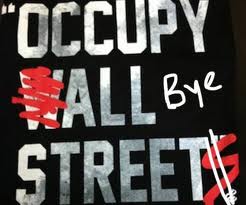CYNICAL POLITICAL MANEUVER; Obama Reassures the Rich on his “Buffett Rule”
On eve of Senate vote

President Barack Obama went out of his way Sunday to reassure the wealthiest Americans that his proposed “Buffett Rule” is not aimed at effecting a more equal distribution of wealth or substantively restoring progressiveness to the US tax code.
At a press conference in Cartegena, Colombia, where he was attending the Summit of the Americas, Obama was asked about his proposal, supported by the billionaire investor Warren Buffett, that households with annual incomes above $1 million pay a minimum income tax rate of 30 percent. Declaring that the rich should not be allowed to pay a lower tax rate than ordinary Americans, Obama is promoting the proposal in the name of restoring “fairmess” to the tax code.
However, in response to reporters’ suggestions that he was adopting the populist policies of certain left nationalist leaders in Latin America, Obama said, “This is not an argument about redistribution… This is not an argument about taking from A to give to B. This is not a redistributionist argument that we’re making.”
Obama’s bid to reassure his corporate backers came the day before the Senate voted on a Democratic bill incorporating features of the so-called Buffett Rule. As expected, the “Paying a Fair Share Act of 2012” was blocked by Senate Republicans, who voted near-unanimously to prevent it from coming to the floor for an up-or-down vote. The vote Monday evening was 51-45, with one Democrat opposing the measure and one Republican supporting it.
The vote was itself a political maneuver, part of a cynical election-year campaign by Obama and the Democrats to market themselves as defenders of “working middle-class Americans” and opponents of wealth and privilege. They have seized on the call for a minimum tax on the very rich as the centerpiece of this electoral ploy.
As Obama made explicit at the press conference in Colombia, his tax proposal, far from representing a significant social reform, actually codifies the Democrats’ repudiation of the principle of progressive taxation—that the rich should pay a substantially higher tax rate than workers and poor people, and that the tax structure should be designed to effect at least a modest redistribution of wealth from the top to the bottom.
The Democrats are emphatically not proposing to raise the top income tax rate, which is currently 35 percent—the lowest level since the early 1920s and far below the 91 percent rate of the 1950s and 1960s and even the near-50 percent rate under Ronald Reagan. Nor are they proposing to raise the 15 percent tax rate on investment income, the major source of income for the rich.
The Buffett Rule gambit is an effort to appeal to popular anger over growing inequality and divert public attention from Obama’s pro-corporate record. The incumbent is being packaged—without any basis in terms of his record or policies—as a stark alternative to his Republican opponent, the multi-millionaire co-founder of the takeover firm Bain Capital.
The campaign on the Buffett Rule is meant as well to provide a fig leaf of “equal sacrifice” for the intensified assault on social programs, jobs and wages that is being prepared for the period after the November elections. Obama and the Democrats have already made clear their readiness to slash Medicare, Medicaid, Social Security, food stamps and other basic social programs as part of a bipartisan deficit-reduction deal with the Republicans.
While promoting the Buffett Rule, knowing that it will never be implemented (largely because they will not fight for it), the Democrats are working out a tax “reform” with the Republicans that will further skew the tax structure in favor of the wealthy. In February, the administration released preliminary details of a proposal overhaul of corporate taxes that would lower the tax rate for companies from the present 35 percent to 28 percent, and reduce it to 25 percent for US manufacturers.
The Senate bill that was defeated Monday is even more toothless than Obama’s proposal. It would impose the 30 percent minimum income tax on households making $2 million or more a year, and only gradually phase in the minimum rate for those making over $1 million.
The Republicans, who control the House of Representative, are preparing their own electoral stunt in the form of a bill to cut business taxes, which they know will not pass the Senate. The measure, to be voted on later this week, would give businesses with fewer than 500 employees a one-time 20 percent tax deduction. As with all windfalls for business advanced by both parties, the House bill is being presented as a “job creation” measure, even though it does not require firms to hire more workers or even make new investments.
An analysis by the nonpartisan Tax Policy Center concluded that business owners making more than $1 million a year would receive 49 percent of the $46 billion in tax cuts under the Republican bill.

